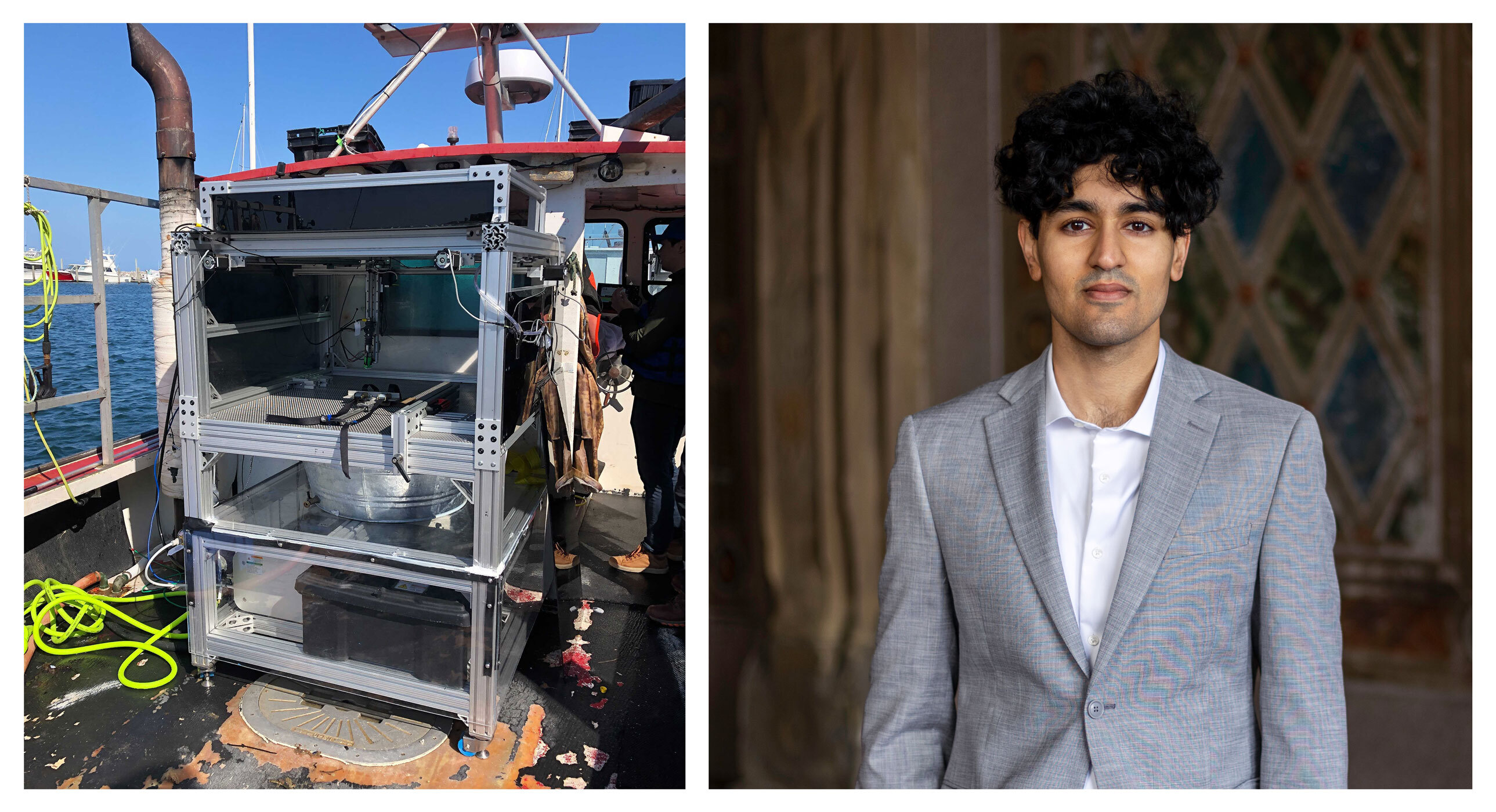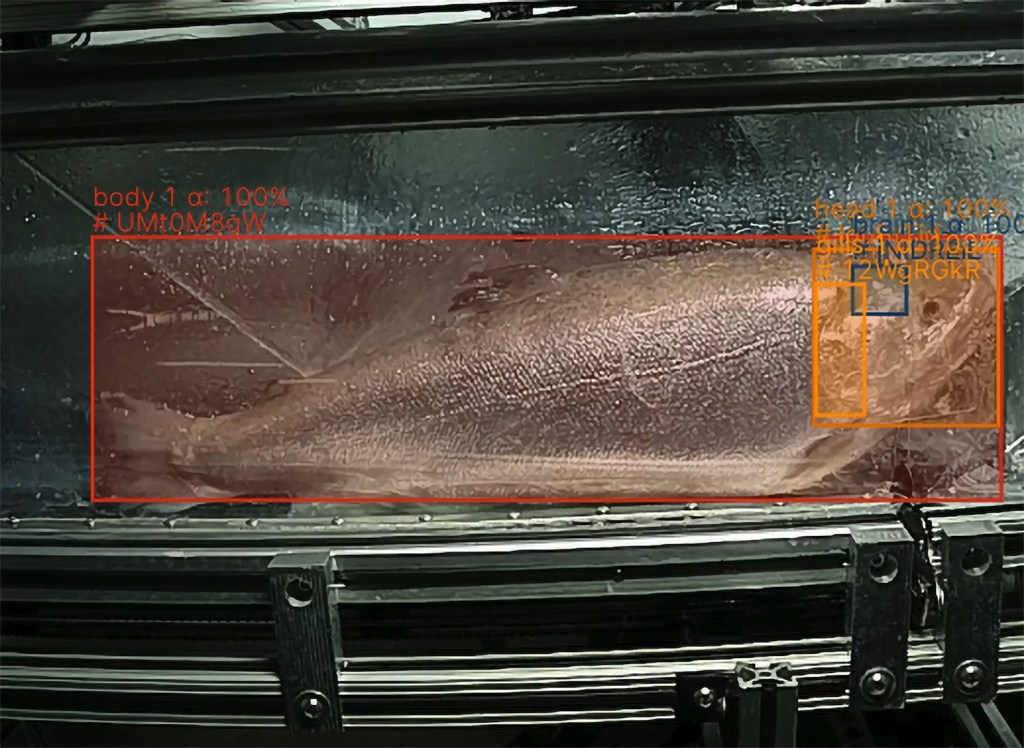Harvesting fish is an inherently messy business, what with being at sea, the slippery creatures wriggling around and everything else. Shinkei is working to improve it with an automated system that more humanely and reliably dispatches the fish, resulting in what could be a totally different seafood economy.
On many fishing vessels, fish are left to suffocate on the deck, flopping about and injuring themselves, resulting in a higher likelihood of bacterial infection, shorter shelf life and worse taste.
A Japanese technique called ike-jime is one alternative, amounting essentially to a spike through the brain rather than a drawn-out, dirty death. But it takes a certain amount of expertise, and a person can only handle so many fish. That’s where Shinkei comes in: automating the process so that the fish don’t suffer and the resulting meat is longer-lasting and of higher quality.
When I last talked to the company in 2022, it was deploying its first prototypes onto vessels to be tested in the unpredictable marine environment. The machine holds the fish in place, identifies the species and shape, and from there can determine where exactly the brain is, which it spikes quickly and accurately. That’s the end of the fish, though it still needs to be exsanguinated, which occurs directly afterwards in an ice bath.
Founder Saif Khawaja told me that in the time since then, Shinkei has refined its machines to be more reliable, moving away from a water-based spike to a mechanical one, along with other improvements one makes when going from a prototype to a production unit.
The improved machines can also be attached in a modular way, allowing parallel processing streams, and the computer vision stack that analyzes the fish on the block is being improved, with new fish types being added as well.
And of course the company has raised money: $6 million that should help it go from pilot to production. The goal is to have 10 machines in actual use by the end of the year. Shinkei is also working on a second machine that performs a second operation, essentially destroying the spinal cord so there’s no trace of the central nervous system left — one step closer to a fillet.

Khawaja sees Shinkei, and the automation of that technique and ike-jime, as potentially the start of a major shift in the seafood economy. It isn’t just that he hopes a more humane harvesting method catches on — there are a number of knock-on effects that could be far-reaching.
The thing about the seafood industry is that there’s a tremendous amount of waste, no doubt partly due to the oceans being considered an inexhaustible resource. They aren’t, by the way! And overfishing is driving many fish toward effective extinction.
One part of this waste is that fish simply don’t last long as a premium product. We’ve all seen the signs: fish, market price, delivered this morning. Because tomorrow, that fish will only be good enough to serve grilled up with sauce or in a salad, and the day after that it’s compost or animal food.
Consumers and restaurants accept this the way we once accepted that milk had to be delivered every few days because it went bad. When packaging technology made it possible for milk to last for weeks rather than days, that changed our relationship with it. Similarly, when in the ’70s, humane slaughter of cows was mandated by the FDA, that became the new standard, including the costs and changes to the supply chain that went with it.

Khawaja hopes that a similar transformation is underway in seafood. Fish killed via ike-jime rather than other ways last far longer, retaining their premium taste and texture for perhaps a week rather than a day or two. The whole degradation process is slowed.
That means a restaurant may not have to buy as many fish, a quarter of which it will throw away perhaps, but will pay more for fewer higher-quality fish that last longer. That kind of shift can make entire industries change.
For instance, over the last few decades we have seen a huge amount of meat-processing labor shifted overseas. Khawaja mentioned that a billion pounds of salmon alone were sent to China to be processed, because it doesn’t make financial sense to do it here where people demand higher wages.
If the value of a single fish rises, and it is easier to process it locally, that may cause the economics of overseas processing (kind of ridiculous to begin with) no longer make sense. The fish can be caught here and stay here, and all the jobs associated with the industry can as well.
Higher-value fish may also put negative pressure on overfishing. If a boat can make the same amount of money on 700 fish as it once did on 1,000, that changes things as well. Fewer boats will need to collect far beyond legal or ethical levels just to survive as a business.
“This is an efficiency net gain for the whole supply chain,” Khawaja said. “I really think that within seafood the problems are particularly pronounced, and a lot of these jobs are dangerous. I worked as a deckhand and almost died! I don’t want this to be a wholly automated supply chain, but to take away dangerous jobs and let the skilled labor forge their new environment.”
The funding round was led by Cantos, along with 8VC, Impatient Ventures, Susa Ventures, Carya Venture Partners, Ravelin Capital, Red & Blue Ventures, Undeterred Capital and existing investors.































Comment